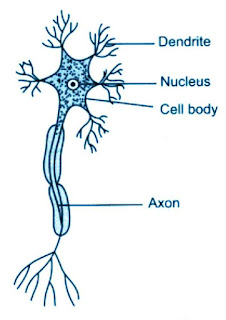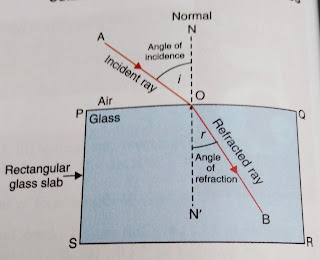NCERT Solutions for Class 6 Science Motion and Measurement of distance
Motion and Measurement of distances : In NCERT Solutions for Class 6 Science Chapter 10 Motion and Measurement of distances Pdf free download.In NCERT Solution for Class 6 Science with Answers you get question-answer based on latest exam pattern. By providing NCERT Solutions for Class 6 Science Chapter 10 Motion and Measurement of distances with Answers our target to help students get the concept of the lesson very well.
You can also visit NCERT Solutions for Class 6 Science Chapter 10 Motion and Measurement of distances to revise your syllabus thoroughly and enhance the chances of securing high marks in your board exams. It also helps in your Motion and Measurement of distances Class 6 online test, online exam for admission well.
-------------------------------------------------------------
Board CBSE
-------------------------------------------------------------
TextBook NCERT
-------------------------------------------------------
CLASS Class 6
--------------------------------------------------------
SUBJECT Science
----------------------------------------------------------
CHAPTER Chapter 10
-------------------------------------------------------------
SUBJECT Motion and Measurement of distances
--------------------------------------------------------------
NCERT Solutions for Class 6 Science Chapter 10 Motion and Measurement of distances
You may also like
Exercises
Question 1:
Give two examples each, of modes of transport used on land, water and air.
Answer 1:
Land transport : Bus, train, bicycle.
Water transport : Boat, ship, submarine.
Air Transport : Aeroplane, helicopter,fighter plane.
Question 2:
Fill in the blanks:
(i) One metre is ______________ cm.
(ii) Five kilometre is ______________ m.
(iii)Motion of a child on a swing is ______________.
(iv)Motion of the needle of a sewing machine is ______________.
(v) Motion of the wheel of a bicycle is______________.
Answer 2:
(i) One metre is 100 cm.
(ii) Five kilometre is 5000 m.
(iii)Motion of a child on a swing is periodic motion.
(iv)Motion of the needle of a sewing machine is periodic motion.
(v) Motion of wheel of the bicycle is circular motion.
Question 3:
Why can a pace or a footstep not be used as a standard unit of length?
Answer 3:
A pace or a footstep not be used as a standard unit of length because the size of pace and
footsteps vary from person to person. This will lead to confusion while measuring the
lengths by different persons. We should use standard units like International System of Units (SI Units).
Question 4:
Arrange the following lengths in their increasing magnitude:
1 metre, 1 centimetre, 1 kilometre, 1 millimetre.
Answer 4:
(1 millimetre) < (1 centimetre) < (1 metre) < (1 kilometre) .
Question 5:
The height of a person is 1.65 m. Express it into cm and mm.
Answer 5:
We know that 1 metre = 100 cm and 1 metre = 1000 mm
So, 1.65 m = 1.65 × 100 = 165 cm
and 1.65 m = 1.65 × 1000 = 1650 mm
The height of a person is 165 cm or 1650 mm
Question 6:
The distance between Radha's home and her school is 3250 m. Express this distance into km.
Answer 6:
We know that 1 m =(1/1000) km
So, 3250 m =(3250/1000) km
= 3.25 km
The distance between Radha's home and her school is 3.25 km
Question 7:
While measuring the length of a knitting needle, the reading of the scale at one end is 3.0 cm and at the other end is 33.1 cm. What is the length of the needle?
Answer 7:
The length of the needle = 33.1 cm – 3.0 cm = 30.1 cm
Question 8:
Write the similarities and differences between the motion of a bicycle and a ceiling fan that has been switched on.
Answer 8:
Similarity : Both the bicycle and the ceiling fan show a circular motion.
Difference : Bicycle shows a rectilinear motion whereas a ceiling fan does not.
Question 9:
Why could you not use an elastic measuring tape to measure distance? What would be some of the problems you would meet in telling someone about a distance you measured with an elastic tape?
Answer 9:
Since the elastic measuring tape is stretchable, hence using this tape we do not get correct measurements.
When we measure the length of an object, we face two problems (i) it will give different measurements of the same object when we measure the object at different times.
(ii) it will have the same measurements of different objects which leads to incorrect measurements.
Question 10:
Give two examples of periodic motion.
Answer 10:
Rotation of planet, Pendulum, vibrating wire of violin, etc.
NCERT Solutions for Class 6 Science Chapter 10 Motion and Measurement of distances


